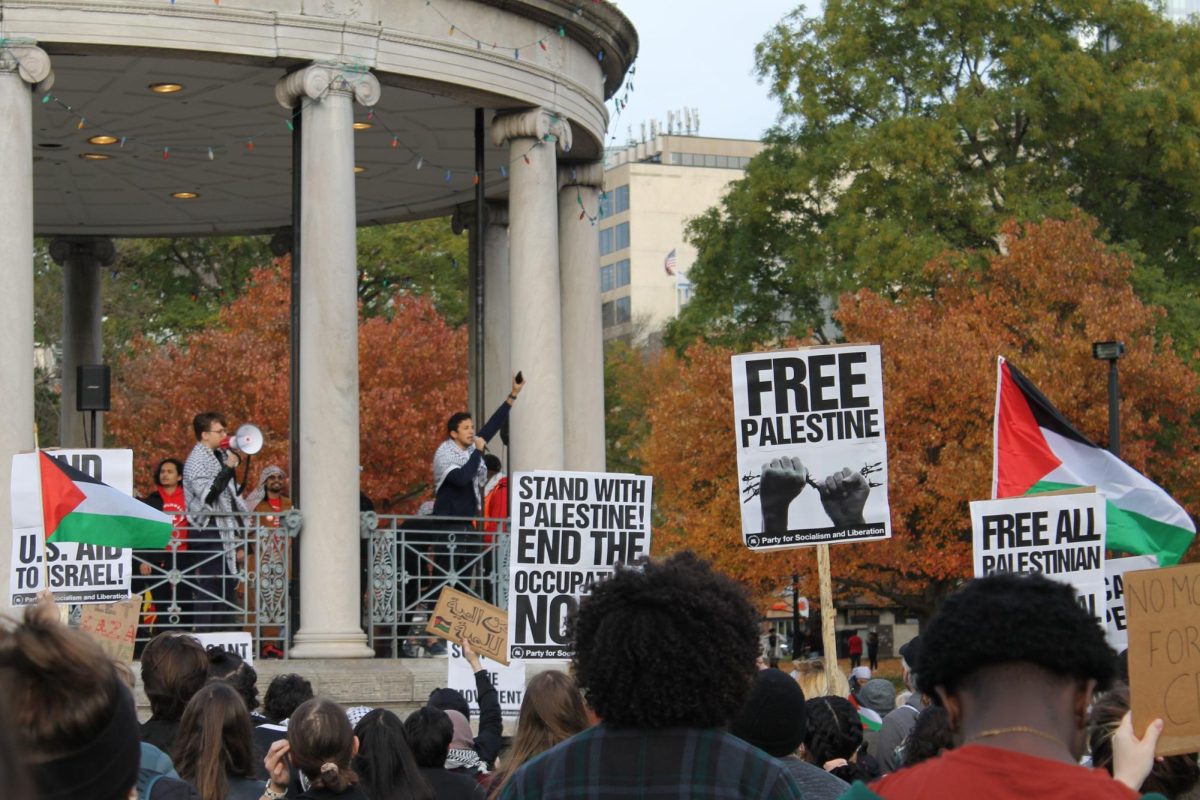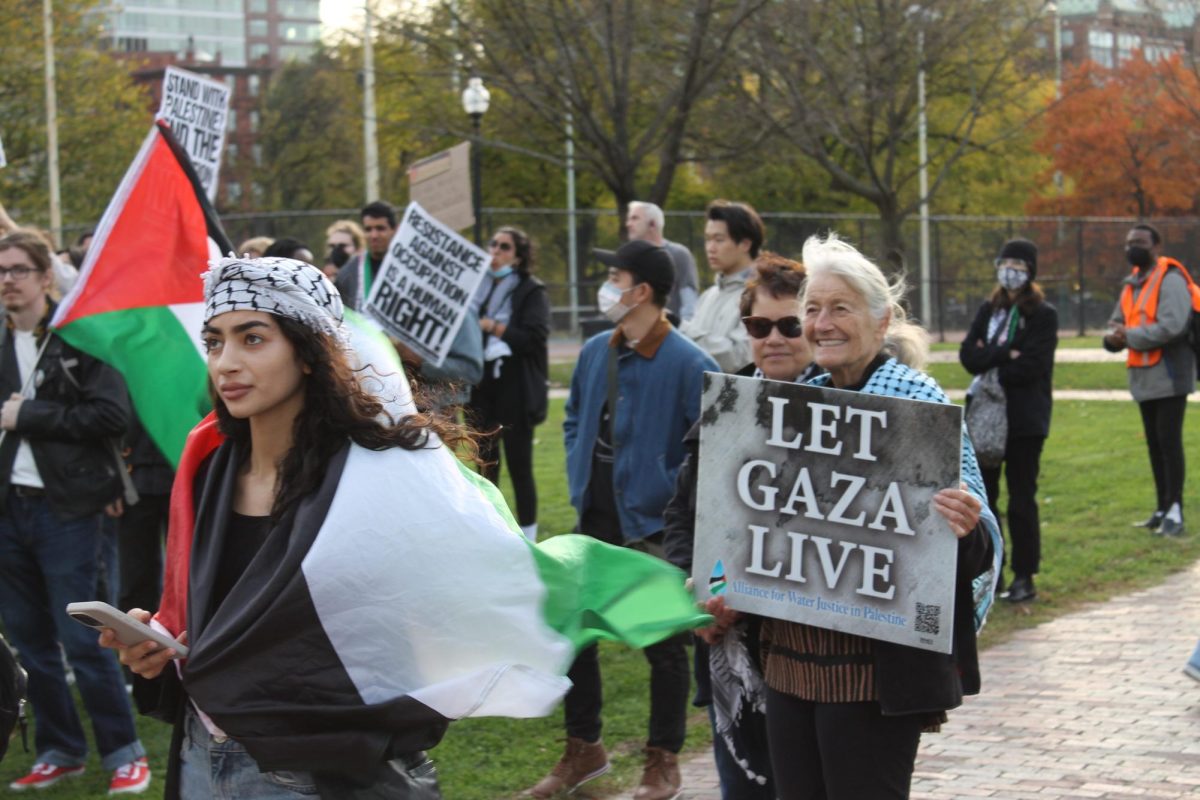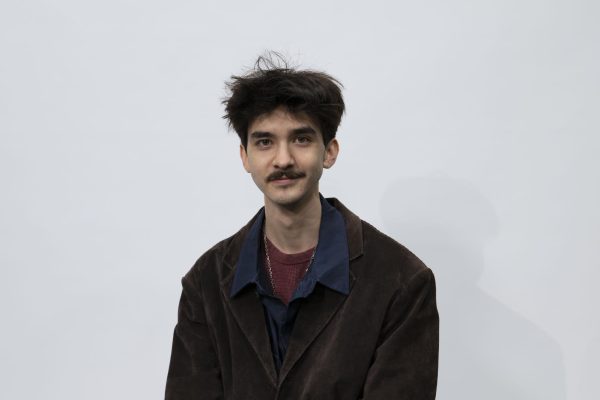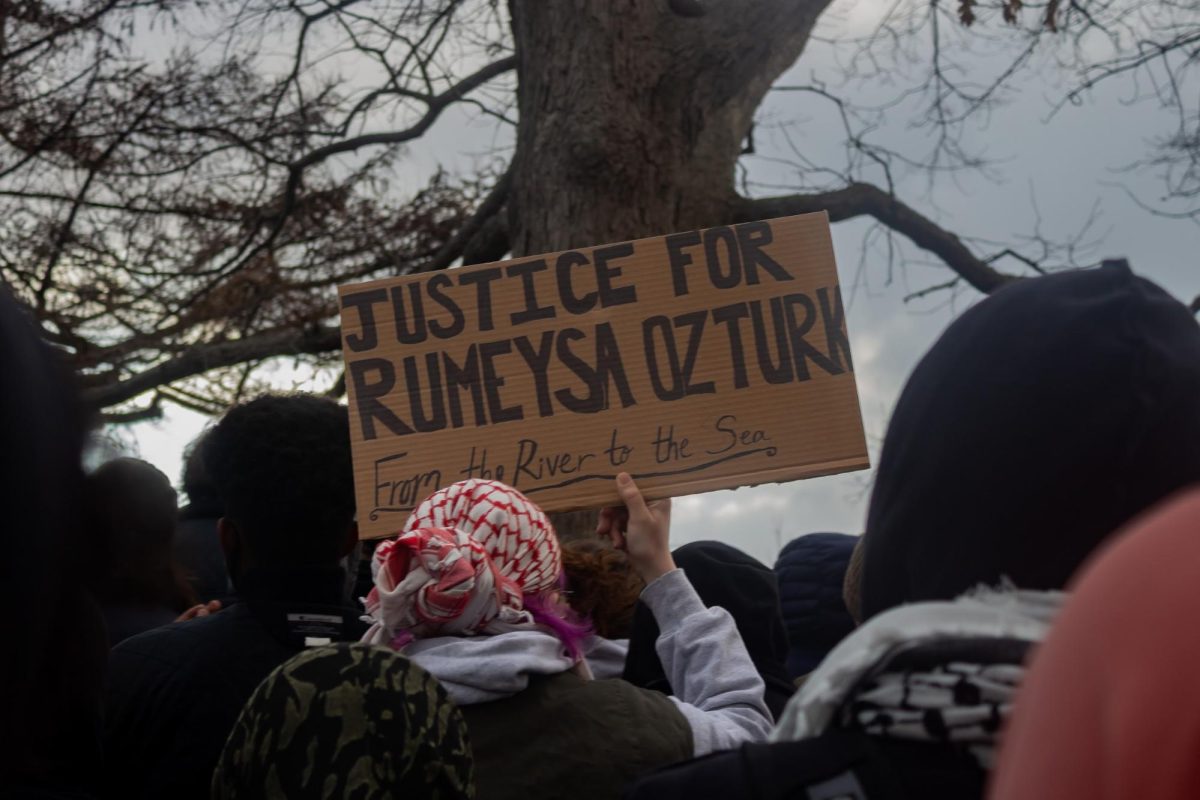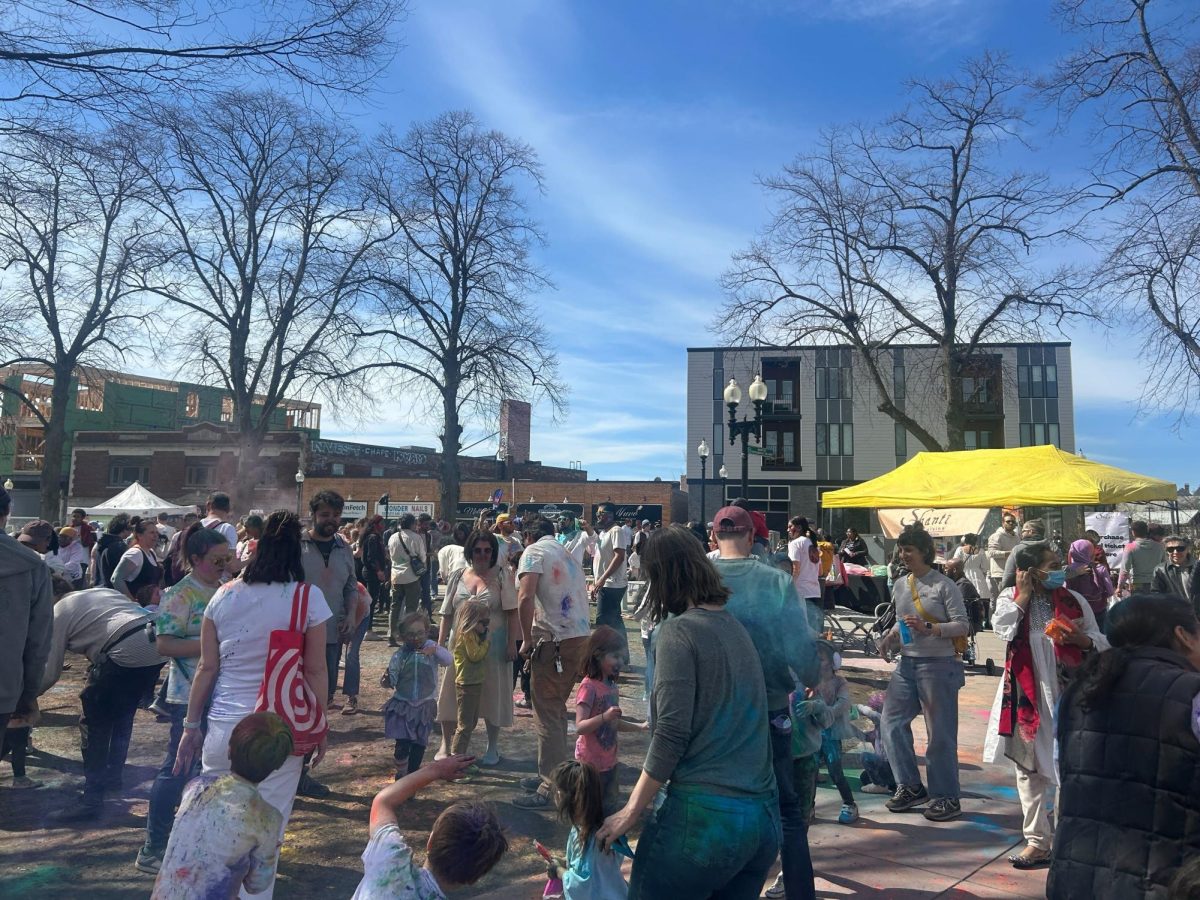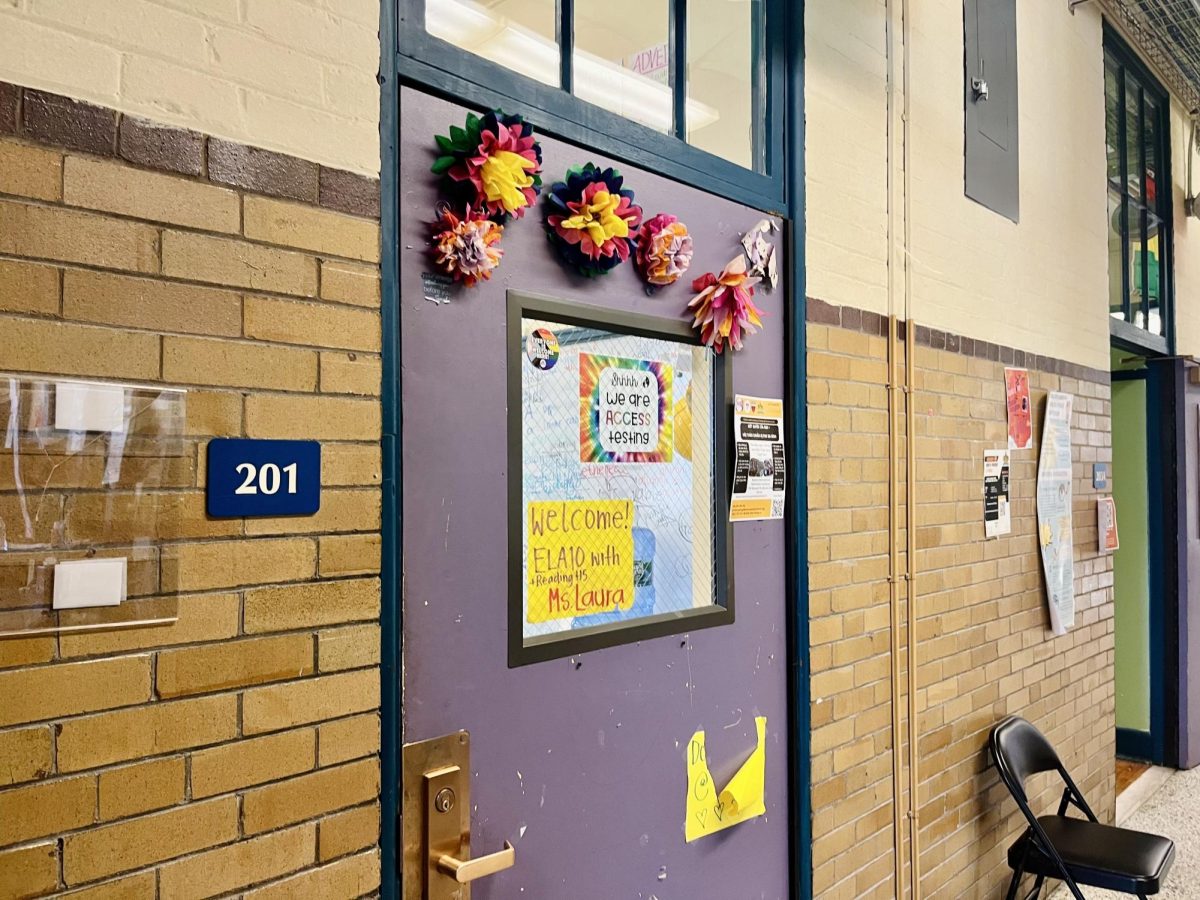Around the world, protesters are raising flags and voices in solidarity with Palestinians in Gaza, calling for a lasting ceasefire of Israeli bombardment of the densely-populated area and an end to Israel’s decades-long occupation.
A student-led protest by the Boston branch of the Party for Socialism and Liberation and several university Students for Justice in Palestine groups brought hundreds to Boston Common Nov. 17 in support of Gaza. Students marched through the Common and up Winter and Summer streets to Boston’s South Station calling for an end to the deadly Israeli attacks and U.S. involvement in the conflict.
“For universities to engage in these acts of oppression where they’re preventing students from engaging in peaceful protests … it’s very shameful, and it really just demonstrates which side these university administrators are taking right now, which is the wrong side,” said Ki-jana Carter, a 28-year-old organizer for the Party for Socialism and Liberation.
Students speaking out in solidarity with Palestine have faced pushback at several Boston universities.
The Massachusetts Institute of Technology warned students that they could be suspended if they stayed at a protest on campus after 12:15 p.m. Advocacy groups, such as the Boston Party for Socialism and Liberation, have called out Brandeis University and Harvard University for what they describe as impeding free speech as students organizing for Palestine continue to be met with resistance.
Harvard President Claudine Gay denounced the use of the phrase “From the river to the sea, Palestine will be free,” as she, among others, have said that the phrase invokes violence against the Jewish population of Israel. Brandeis banned its chapter of Students for Justice in Palestine, or SJP, from demonstrating on campus. In a statement to NBC 10 Boston, Brandeis wrote “National SJP has called on its chapters to engage in conduct that supports Hamas in its call for the elimination of the only Jewish state in the world and its people. Such expression is not protected by Brandeis’ principles of free speech.”
Students have proceeded to protest and call attention to universities they say are preventing free speech and their right to peacefully assemble.
“What we have also seen is that the students are not taking this lying down and they’re continuing to come out,” Carter said. “They’re continuing to take action, and if anything, they’re organizing even more bravely than they were before.”
Students discuss Boston schools’ ties to defense contractors
Protesters highlighted several Boston universities that have well-established relationships with defense companies such as Raytheon, the military division of RTX Corp. and Boeing Co., among other defense companies, which are used as a recruiting pool for engineering students.
According to Northeastern University Arlington’s partnerships page, “Raytheon Technologies has a decades-long history of partnering with Northeastern.” The Northeastern headquarters in Arlington works closely with staff and helps to “build and fill Raytheon’s talent pipeline,” hiring students into six-month co-ops and recruiting graduates to the workforce.
ALERT, a program led by Northeastern in partnership with Boston University, conducts and shares defense research with industrial partners, which have included Raytheon and Leidos. According to its site, Northeastern Arlington also designs programs, workshops and seminars for the U.S. armed forces, federal agencies and other organizations “eager to maintain a competitive edge,” including the National Guard.
Northeastern’s Student Government Association, or SGA, passed a bill earlier this year that demanded Northeastern cut ties with defense contractors and organizations involved in human rights abuses, including terminating contracts with Raytheon, Lockheed Martin and General Dynamics.
At MIT, students held a “No Science for Genocide” demonstration, as science and engineering students continue to become frustrated with finding out their work has been contributing to war, continuing to call for divestment from the military industrial complex.
Protesters at the Nov. 17 demonstration chanted, “Israel bombs, USA pays, how many kids did you kill today?” as they held up posters reading “No Science for Genocide.”
Students discuss U.S. ties to ongoing Israeli bombardment
Students said the United States’ contributions to the human rights violations that have unfolded in Gaza since Oct. 7 are unacceptable.
“We’re here because there’s really an enormous upswing in the movement in the United States to support the Palestinian people in resisting the genocide that Israel is carrying out on them, and that the U.S. is funding,” Carter said.
The U.S. has, and continues to send, weapons to Israel, and U.S. weapons from companies including Raytheon and Lockheed are likely being used in the current conflict.
“I think the fact that we live here in the U.S., which is really the heart of the world empire – it’s an imperialist power that wants to control every part of the globe, including the Middle East,” Carter said. “That’s exactly why they are so insistent on funding Israel and supporting them while they carry out this genocide.”
It has been more than a month since Hamas’ Oct. 7 attack, during which around 1,200 were killed in southern Israel, nearly 5,000 injured and 240 kidnapped, and many are still missing as of Nov. 29.
As of now, there is estimated to have been more than 14,000 people, including about 5,500 children, killed in Gaza due to Israeli land and air attacks. Nearly 3,000 Palestinians are still missing and another 28,000 have been injured, according to the Health Ministry in Gaza.
Even as a temporary ceasefire and hostage deal have been organized, which involves the release of at least 50 Israeli women and children and 150 Palestinian women and children, there has been no indication of a permanent end to the fighting. So far, more than 80 hostages seized by Hamas Oct. 7 and 180 from Israeli prisons have been freed.
Students and demonstrators around the globe, as well as a handful of politicians, have put pressure on institutions and governments to intervene and call for an immediate ceasefire. This international pressure set the stage for the current deal, as many continue to call for a more lasting ceasefire.
“Every day more and more devastation is occurring, so it’s important that we act now, and it’s important that we build pressure to withdraw U.S. support for Israel as fast as possible,” said Cole Stevens, a 20-year-old Emerson second-year student, days before Israel and Hamas reached a ceasefire agreement.
The Israeli government’s counterattack, marking the most forceful bombing campaign in the 75-year-old Israeli-Palestinian conflict, has involved the bombing of schools, hospitals, media facilities, refugee camps and neighborhoods, leaving nearly half of Gaza’s homes damaged or completely destroyed.
It wasn’t just students at the Boston Common protest, but Bostonians of all ages and races gathered to listen to speakers and join in the march.
“We have seen international law completely trashed by the impunity given Israel,” said Nancy Murray, a 78-year-old Cambridge resident. “Our first responsibility is to try to say, let us adhere to national law– everyone deserves life, liberty and the pursuit of happiness.”
Protesters condemned Israel’s cutting off of electricity, fuel, food and water to the civilian-majority population, leaving more than 2 million people suffering from shortage of basic needs and medical supplies. Israel has maintained a much longer land, air and sea blockade over the Gaza Strip since 2007, massively impeding the movement of people and resources in the area.
“The Palestinians have been living under such oppressive and apartheid circumstances for so long that it’s time for that to end and it’s time to acknowledge that they are human beings too,” Murray said. “The dehumanization has been very frightening.”



